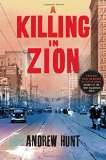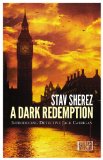Summary | Excerpt | Reviews | Beyond the book | Read-Alikes | Genres & Themes | Author Bio

A Detective Mollel Novel
by Richard CromptonIn his debut novel, Hour of the Red God (published as The Honey Guide in the UK), Richard Crompton brings to life an unexpected new hero, Detective Mollel – a widowed ex-Maasai warrior who, unlike the majority of his co-workers in Nairobi's Central Criminal Investigation Department, actually seeks to bring his cases to justice. Three days before Christmas, and five days before Kenya's controversial presidential election in 2007 that resulted in bloodshed and intense inter-tribal violence, Mollel finds the body of a Maasai prostitute named Lucy in a storm drain close to Uhuru Park in the center of the city. The twenty-something woman appears to have been butchered in a recent circumcision procedure known as e-muruata, usually performed at the onset of puberty within the Maasai tribe. [A note to sensitive readers: while Crompton gives some details about the ceremony, he is able to do so without being overly gruesome.] Lucy's roommate Honey, named after the en'cecoroi bird, guides Mollel. "Mollel recalls the bird: a drab little creature, but full of spirit. It does not fear humans, but leads them to bees' nests in hope of picking off the larvae for its chicks once the man has taken the honey." With Honey's help, as well as the help of his tenacious Kikuyu partner Kiunga, Mollel's investigation leads him to some powerful and dangerous people. Street riots, murder, tribal tensions, Christian evangelism, secret abortions, lies and lots and lots of money all play a role in this well-wrought story.
What I like most about this novel is how Crompton allows readers to experience Nairobi with all five senses. Some of his vivid descriptions: we feel the oppressive heat while waiting in horrific traffic, we taste the dust of the landscapes and the spiciness of chai, and we hear the supportive murmurs of churchgoers as Reverend George Nalo preaches about God and what to look for in a political candidate.
The compacted trash underfoot has some give in it, spongy, the one-story houses around them are made from sticks and rusting iron sheets, ragged curtains in doorways, everywhere the smell of food, of smoke, the sound of babies crying and music playing and laughter. Chickens and children compete for space around the legs of women standing around the doorways. The place feels alive, organic.
Crompton interweaves an incredible amount of detail about Kenya's people and traditions. (I found it very interesting to learn that he and his wife have lived in Kenya since 2007 after Crompton accepted a position as CNBC's bureau chief in Nairobi.) The settings are real, contemporary places – Uhuru Park, the shops on Biashara Street, K Street's red light district – and it's fun to look up these places online and feel like you're following Mollel's footsteps.
According to the publisher, Crompton's research "showed him things about the inner-workings of Nairobi he'd never seen before – especially being shown around the grittier areas of the city by a friend in the Nairobi police force." Because of this careful research, I walked away with a better understanding of the country's politics, tribal customs, social tensions, and socio-economic issues, not to mention a curiosity to learn more. (I happily lost a few hours online reading articles about the controversial 2007 Kenya elections, watching videos of the remarkable honey guide bird, and studying the traditional dress and stretched earlobes of the Maasai people.) I also appreciate that Crompton gives most of his characters an opportunity to tell their side of the story. Of course, not all of them are trustworthy - that's part of what makes it so interesting.
There are, however, a few specific plot threads and relationships – such as the one between Mollel and his young and rather marginalized son Adam – that seem to fall flat. The writing lacks the same quality of detail as found elsewhere in the book, and organic interactions are exchanged for detached and slightly unrealistic (or unnecessary) plot complications. And in the last 50 pages the interaction between some of the characters becomes too convenient, as though it was time to wrap everything up so as to get started on the next book. However, as I read I also got the impression that these thin patches would develop and resolve themselves as the Detective Mollel series continues, and I'm certainly looking forward to the next installment.
Hour of the Red God will appeal to a wide variety of readers - series mystery fans, those interested in international culture and politics, and those who enjoy experiencing books through sensual description. It certainly educates as it entertains without being heavy-handed or judgmental. Recommended!
In this video, author Richard Crompton describes Hour of the Red God while in Nairobi:
![]() This review was originally published in The BookBrowse Review in May 2013, and has been updated for the
April 2014 edition.
Click here to go to this issue.
This review was originally published in The BookBrowse Review in May 2013, and has been updated for the
April 2014 edition.
Click here to go to this issue.

If you liked Hour of the Red God, try these:

by Andrew Hunt
Published 2015
A deeply researched mystery, A Killing in Zion portrays a city and a religion struggling to grow and shake off a notorious history that has not yet become a thing of the past.

by Stav Sherez
Published 2013
A Dark Redemption introduces DI Jack Carrigan and DS Geneva Miller as they investigate the brutal rape and murder of a young Ugandan student
The worst thing about reading new books...
Click Here to find out who said this, as well as discovering other famous literary quotes!
Your guide toexceptional books
BookBrowse seeks out and recommends the best in contemporary fiction and nonfiction—books that not only engage and entertain but also deepen our understanding of ourselves and the world around us.